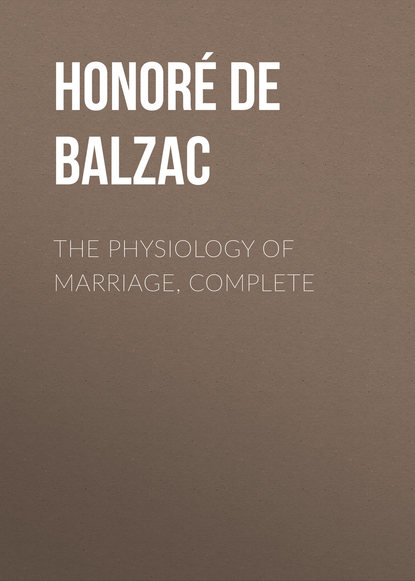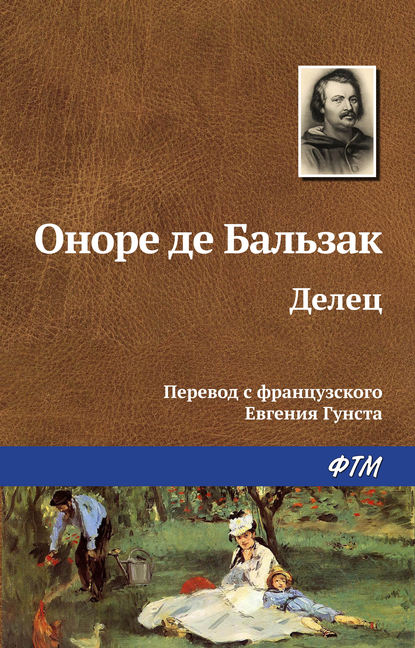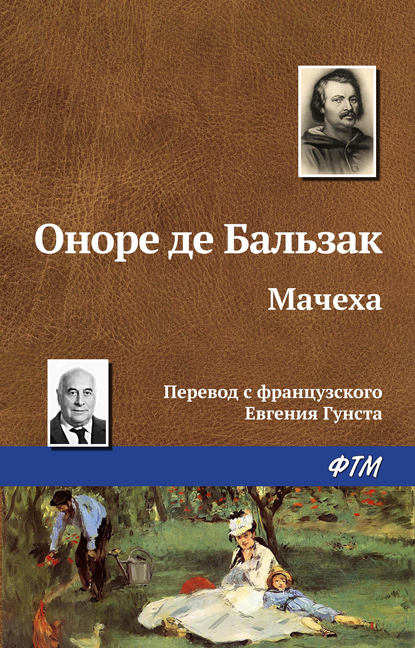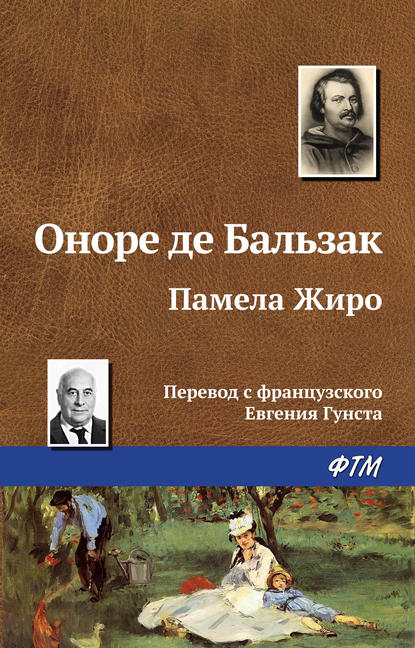
Полная версия
The Physiology of Marriage, Complete
After all, what is the question before us? For what do you think we are stipulating? We are making a claim for five or six hundred thousand maidens, protected by their instinctive timidity, and by the high price at which they rate themselves; they understand how to defend themselves, just as well as they know how to sell themselves. The eighteen millions of human beings, whom we have excepted from this consideration, almost invariably contract marriages in accordance with the system which we are trying to make paramount in our system of manners; and as to the intermediary classes by which we poor bimana are separated from the men of privilege who march at the head of a nation, the number of castaway children which these classes, although in tolerably easy circumstances, consign to misery, goes on increasing since the peace, if we may believe M. Benoiston de Chateauneuf, one of the most courageous of those savants who have devoted themselves to the arid yet useful study of statistics. We may guess how deep-seated is the social hurt, for which we propound a remedy, if we reckon the number of natural children which statistics reveal, and the number of illicit adventures whose evidence in high society we are forced to suspect. But it is difficult here to make quite plain all the advantages which would result from the emancipation of young girls. When we come to observe the circumstances which attend a marriage, such as our present manners approve of, judicious minds must appreciate the value of that system of education and liberty, which we demand for young girls, in the name of reason and nature. The prejudice which we in France entertain in favor of the virginity of brides is the most silly of all those which still survive among us. The Orientals take their brides without distressing themselves about the past and lock them up in order to be more certain about the future; the French put their daughters into a sort of seraglio defended by their mothers, by prejudice, and by religious ideas, and give the most complete liberty to their wives, thus showing themselves much more solicitous about a woman’s past than about her future. The point we are aiming at is to bring about a reversal of our system of manners. If we did so we should end, perhaps, by giving to faithful married life all the flavor and the piquancy which women of to-day find in acts of infidelity.
But this discussion would take us far from our subject, if it led us to examine, in all its details, the vast improvement in morals which doubtless will distinguish twentieth century France; for morals are reformed only very gradually! Is it not necessary, in order to produce the slightest change, that the most daring dreams of the past century become the most trite ideas of the present one? We have touched upon this question merely in a trifling mood, for the purposes of showing that we are not blind to its importance, and of bequeathing also to posterity the outline of a work, which they may complete. To speak more accurately there is a third work to be composed; the first concerns courtesans, while the second is the physiology of pleasure!
“When there are ten of us, we cross ourselves.”
In the present state of our morals and of our imperfect civilization, a problem crops up which for the moment is insoluble, and which renders superfluous all discussion on the art of choosing a wife; we commend it, as we have done all the others, to the meditation of philosophers.
PROBLEMIt has not yet been decided whether a wife is forced into infidelity by the impossibility of obtaining any change, or by the liberty which is allowed her in this connection.
Moreover, as in this work we pitch upon a man at the moment that he is newly married, we declare that if he has found a wife of sanguine temperament, of vivid imagination, of a nervous constitution or of an indolent character, his situation cannot fail to be extremely serious.
A man would find himself in a position of danger even more critical if his wife drank nothing but water [see the Meditation entitled Conjugal Hygiene]; but if she had some talent for singing, or if she were disposed to take cold easily, he should tremble all the time; for it must be remembered that women who sing are at least as passionate as women whose mucous membrane shows extreme delicacy.
Again, this danger would be aggravated still more if your wife were less than seventeen; or if, on the other hand, her general complexion were pale and dull, for this sort of woman is almost always artificial.
But we do not wish to anticipate here any description of the terrors which threaten husbands from the symptoms of unhappiness which they read in the character of their wives. This digression has already taken us too far from the subject of boarding schools, in which so many catastrophes are hatched, and from which issue so many young girls incapable of appreciating the painful sacrifices by which the honest man who does them the honor of marrying them, has obtained opulence; young girls eager for the enjoyments of luxury, ignorant of our laws, ignorant of our manners, claim with avidity the empire which their beauty yields them, and show themselves quite ready to turn away from the genuine utterances of the heart, while they readily listen to the buzzing of flattery.
This Meditation should plant in the memory of all who read it, even those who merely open the book for the sake of glancing at it or distracting their mind, an intense repugnance for young women educated in a boarding school, and if it succeeds in doing so, its services to the public will have already proved considerable.
MEDITATION VII. OF THE HONEYMOON
If our meditations prove that it is almost impossible for a married woman to remain virtuous in France, our enumeration of the celibates and the predestined, our remarks upon the education of girls, and our rapid survey of the difficulties which attend the choice of a wife will explain up to a certain point this national frailty. Thus, after indicating frankly the aching malady under which the social slate is laboring, we have sought for the causes in the imperfection of the laws, in the irrational condition of our manners, in the incapacity of our minds, and in the contradictions which characterize our habits. A single point still claims our observation, and that is the first onslaught of the evil we are confronting.
We reach this first question on approaching the high problems suggested by the honeymoon; and although we find here the starting point of all the phenomena of married life, it appears to us to be the brilliant link round which are clustered all our observations, our axioms, our problems, which have been scattered deliberately among the wise quips which our loquacious meditations retail. The honeymoon would seem to be, if we may use the expression, the apogee of that analysis to which we must apply ourselves, before engaging in battle our two imaginary champions.
Конец ознакомительного фрагмента.
Текст предоставлен ООО «ЛитРес».
Прочитайте эту книгу целиком, купив полную легальную версию на ЛитРес.
Безопасно оплатить книгу можно банковской картой Visa, MasterCard, Maestro, со счета мобильного телефона, с платежного терминала, в салоне МТС или Связной, через PayPal, WebMoney, Яндекс.Деньги, QIWI Кошелек, бонусными картами или другим удобным Вам способом.
1
The foregoing queries came in (untranslatable) alphabetic order in the original. – Editor












